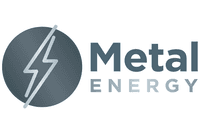The mining giant announced last week that it has abandoned the sale of its Western Australian Nickel West business, but what does it have planned for the asset? Nickel Investing News takes a look.
In a move that some believe was inevitable, BHP Billiton (ASX:BHP,NYSE:BHP,LSE:BLT) announced last Wednesday that it has abandoned plans to sell its Western Australian Nickel West business. Instead it will keep it in its portfolio as a non-core asset.
Nickel West, which includes the Mt. Keith, Cliffs and Leinster mines, has been in limbo since May of this year, when BHP put it under review. At the time, the company said that it was considering “all options” for the asset’s long-term future, “including the potential sale of all or parts of the business.”
As time passed, it became clear that a sale was the preferred option for BHP. In August, the miner revealed plans to focus on the “four pillars” of iron ore, copper, coal and petroleum by spinning off its aluminum and manganese businesses, along with its Australian metallurgical coal assets and South African thermal coal operations. Individual assets like the Colombia-based Cerro Matoso nickel project and Cannington zinc–lead–silver mine were also earmarked for the new company.
Nickel West, however, was set aside in hopes that it would be sold separately. So what went wrong?
Interest wasn’t the problem. According The Globe and Mail, Glencore (LSE:GLEN) and China’s Jinchuan Group were potential buyers, and indeed the Financial Times quotes Ivan Glasenberg, CEO of the former, as saying, “Nickel West is out in the market and you know us, we kick tyres and look at anything which is available.”
Instead it seems that price may have been at least part of the issue. The West Australian states that BHP originally placed a value of $500 to $800 million on Nickel West, but would have sold it for as little as $300 million if the buyer had agreed to take on clean-up costs for the sites, which analysts have pegged at AU$1 billion. However, industry sources have said that “no final bids received over the past fortnight came close” to what the mining giant was looking for.
For its part, BHP has said only that the sale of the business was not “achieved on an acceptable basis,” adding that it “will only pursue options that maximise value for shareholders.”
Unfortunately, some market watchers believe the opportunity to achieve maximum shareholder value through the sale of Nickel West has passed. Speaking to the Financial Times, Morningstar analyst Mark Taylor noted, “[t]he time to sell these mining assets was during the boom. It is difficult to attract a good price when commodity prices are softening.”
And indeed, nickel hasn’t been having the best time lately. As The Globe and Mail notes, while the metal was up 50 percent since the start of the year when BHP first announced its review of Nickel West, it’s now down 26 percent from this year’s peak. Some analysts even believe a surplus is in store for the base metal.
None of that sounds like good news for Nickel West, but perhaps the most damning piece of news to come to light these past few days is that BHP executives have reportedly told those working at the business that it will “cease to exist by the end of the decade.”
Specifically, states another article from The West Australian, sources have said that “Nickel West staff were told there [will] be no significant new capital injections and BHP expect[s] the unit [will] cease to exist by 2019″ — that’s the year Nickel West’s major offtake and supply contracts expire. BHP hasn’t confirmed that rumor, but a spokesperson did tell the news outlet that due to “intense internal competition,” the asset is only likely to receive the sustaining capital it needs to keep “deliver[ing] safe and efficient production.”
Though of course making assumptions is rarely a smart move in the resource sector, at the moment it’s looking like Nickel West’s days may be numbered. Nickel market participants would do well to keep their eyes peeled for further statements from BHP.
Securities Disclosure: I, Charlotte McLeod, hold no direct investment interest in any company mentioned in this article.
Related reading:
BHP to Say Goodbye to Businesses Worth US$16 Billion in Spin Off



